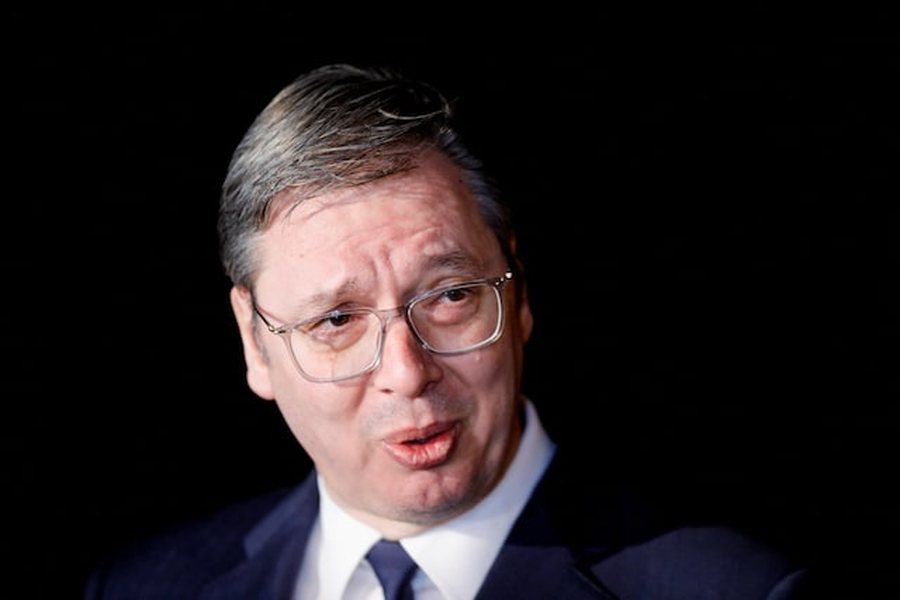
During a meeting with representatives of the Swiss economy, Serbian President Aleksandar Vucic spoke about Kosovo, geopolitical tensions and the economic prospects of his country.
In the weekend issue, the German daily Berliner Zeitung devotes an article to the speech of the President of Serbia, Aleksandar Vučić, during a meeting (4.12.) in Zurich, Switzerland, organized by Weltwoche magazine.
"The solution to the conflict with Kosovo is the integration of the Balkans into the EU"
Vučić criticized the NATO intervention of 1998/99 and made comparisons with the crisis in Ukraine. "Arguments in defense of Ukraine's territorial integrity are well understood in Serbia, but the same principles were denied to Serbia in 1999," he declared. He recalled that NATO had acted "without a UN mandate and outside the framework of international law" to "enable the secession of Kosovo from Serbian territory."
With the full acceptance of the Balkan region in the EU, the problem with Kosovo can be solved, Berliner Zeitung quotes Vucic. According to her, Vucic has cited successful examples from recent European history, such as South Tyrol, Alsace or the modern German-Polish relationship, ensured by Germany's final relinquishment of eastern territories in the 4+2 agreement of 1990. Vucic emphasized that political leaders such as Macron, Scholz or von der Leyen, but also Putin, should want this given the situation in Ukraine.
The models suggested by Vucic
South Tyrol is an autonomous region in Italy, inhabited mainly by German speakers, where conflict over identity and cultural rights was resolved through extended autonomy in the 1970s. Alsace, a region in France with a long history of conflict between Germany and France , became a symbol of reconciliation after World War II. Its integration into France with respect for the local culture and language shows the success of the European dialogue and cooperation. While the Two plus Four agreement (1990) was signed between the two Germanys and the four allied powers to allow the reunification of Germany, guaranteeing the relinquishment of claims territorial over the eastern areas.
"Sanctions against Russia harm the German economy"
The Serbian president has underlined the important role of Germany in Europe and its historical potential as a mediator. "Germany, because of its modern history, is destined to take a structuring role in this discussion." He also highlighted the negative effects of sanctions policies: "Multiple sanctions packages hurt more than they help, especially European industries like the automotive industry in Germany."
Regarding Serbia's economic prospects, Vucic spoke optimistically and mentioned the strategic importance of lithium reserves in the country: "There will be no sale of the raw material to the highest bidder." He announced that Serbia plans "to develop the entire value chain, from extraction to production of batteries domestically." /DW/ (A2 Televizion)











